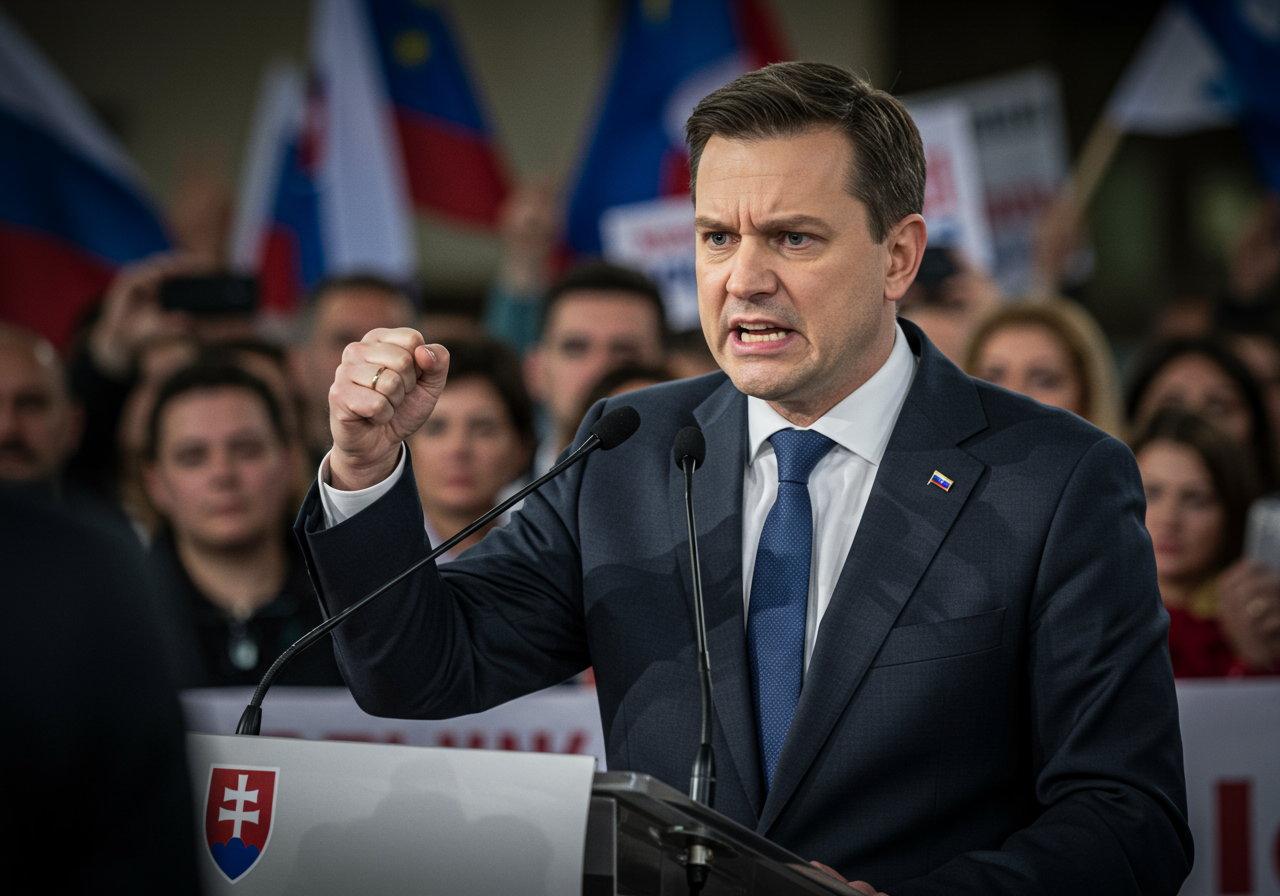The recent allegations involving a prominent European politician have stirred a wave of reactions from various political circles. The politician in question, Tomáš Zdechovský, a Member of the European Parliament and representative of the Czech Republic, is facing criticism over claims of running a negative campaign against Slovakia. This development has resulted in a diplomatic altercation, drawing significant attention across Central European countries.
The incident revolves around statements and actions alleged to be undertaken by Zdechovský, purportedly aiming to undermine Slovakia on the international stage. Such assertions have sparked a heated debate about the responsibilities and ethical conduct expected from European representatives, especially concerning intra-European relations.
The Core of the Allegations
The controversy began with allegations that Zdechovský engaged in activities that could be seen as an orchestrated campaign targeting Slovakia. These allegations have been characterized by some officials as attempts to cast Slovakia in a negative light in various political and economic discussions within the European Union.
The purported mechanisms of this campaign reportedly included speeches and statements made by Zdechovský, both within the European Parliament and in other forums, where Slovakia’s policies, leadership, and economic strategies were allegedly questioned or criticized in a manner deemed unwarranted by Slovak authorities. Some Slovak politicians accused him of bias and of furthering a narrative that could potentially harm Slovakia’s standing among its EU partners.
Response from Slovak Officials
Slovak officials have quickly responded to these allegations, expressing their deep concern over what they perceive as inappropriate conduct by a member of the European Parliament. The Slovak Ministry of Foreign Affairs reported it was monitoring the situation closely and considering possible diplomatic steps to address the issue within the frameworks of EU discussions.
A spokesperson from the Slovak government commented, “Slovakia values its relationships with all EU member states, and any unfounded actions aiming to damage these relationships are deeply troubling.” The statement further emphasized Slovakia’s commitment to maintaining a positive image and fostering strong alliances within the European Union.
Reactions from Political Analysts and Media
The incident has garnered significant media attention, with various political analysts weighing in on the implications of such actions if proven true. Some experts highlight the importance of maintaining unity within the EU, suggesting that issues of this nature risk creating unnecessary discord among member states.
Media outlets across Europe have been covering the story extensively, dissecting potential motives behind the alleged campaign and its impact on Czech-Slovak relations. The historical ties between these two countries add a complex layer to the ongoing discussions, as both nations have traditionally enjoyed a close partnership notwithstanding periods of political disagreement.
The Czech media has shown varying degrees of interest, with some defending Zdechovský’s stance as critical yet constructive, while others call for a more careful approach to cross-border political critiques that may harm national reputations.
Zdechovský’s Defense
Tomáš Zdechovský has fervently denied the allegations, asserting that his remarks and positions have been misinterpreted or taken out of context. In a statement released via his official channels, he explained, “My commitment to the European project and regional cooperation is unwavering. My statements have always aimed at fostering dialogue and improvement, not division.”
Zdechovský also stressed his dedication to addressing any misunderstandings directly with the Slovak representatives involved. He has called for open discussions to resolve the matter amicably and to ensure that future communications are clear and void of misinterpretations.
Additionally, he has emphasized that his role as a European representative involves critical assessments of policies for constructive reforms, not efforts to undermine individual nations or their leaders.
Impact on Czech-Slovak Relations
The strained atmosphere resulting from this controversy may affect diplomatic and economic engagements between the Czech Republic and Slovakia. Historically, the two countries have maintained strong bilateral ties, fostered by close cultural and economic relationships established since their peaceful split in 1993.
However, incidents like this bring to light the intricate balance required in international diplomacy within the EU. Both countries acknowledge the need to address such matters with sensitivity to maintain the integrity of their longstanding partnership.
As the situation unfolds, political analysts and commentators remain vigilant, watching for developments that could set precedents for how similar disputes are managed within the European context. The resolution of this issue could have far-reaching implications for intra-EU diplomacy, influencing how nations navigate conflicts and cooperation within shared political institutions.
In the broader context, this incident serves as a reminder of the challenges inherent in European unity, where diverse national interests and perspectives must be balanced within a collective agenda. The discourse prompted by these allegations emphasizes the need for European leaders to continually strive for collaboration while respecting each nation’s sovereignty and dignity.
While the allegations remain contentious, the emphasis now shifts to diplomatic dialogue and transparency, pivotal in resolving disputes and reinforcing the values that the European Union stands for. It is through such processes that member states like Slovakia and the Czech Republic can navigate challenges and continue to build a cohesive and prosperous regional community.
